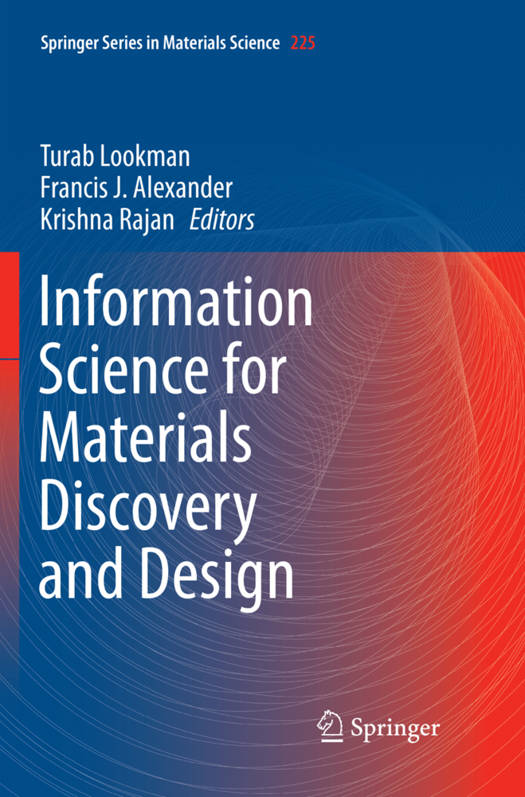
- Retrait gratuit dans votre magasin Club
- 7.000.000 titres dans notre catalogue
- Payer en toute sécurité
- Toujours un magasin près de chez vous
- Retrait gratuit dans votre magasin Club
- 7.000.0000 titres dans notre catalogue
- Payer en toute sécurité
- Toujours un magasin près de chez vous
Information Science for Materials Discovery and Design
Description
This book deals with an information-driven approach to plan materials discovery and design, iterative learning. The authors present contrasting but complementary approaches, such as those based on high throughput calculations, combinatorial experiments or data driven discovery, together with machine-learning methods. Similarly, statistical methods successfully applied in other fields, such as biosciences, are presented. The content spans from materials science to information science to reflect the cross-disciplinary nature of the field. A perspective is presented that offers a paradigm (codesign loop for materials design) to involve iteratively learning from experiments and calculations to develop materials with optimum properties. Such a loop requires the elements of incorporating domain materials knowledge, a database of descriptors (the genes), a surrogate or statistical model developed to predict a given property with uncertainties, performing adaptive experimental design to guide the next experiment or calculation and aspects of high throughput calculations as well as experiments. The book is about manufacturing with the aim to halving the time to discover and design new materials. Accelerating discovery relies on using large databases, computation, and mathematics in the material sciences in a manner similar to the way used to in the Human Genome Initiative. Novel approaches are therefore called to explore the enormous phase space presented by complex materials and processes. To achieve the desired performance gains, a predictive capability is needed to guide experiments and computations in the most fruitful directions by reducing not successful trials. Despite advances in computation and experimental techniques, generating vast arrays of data; without a clear way of linkage to models, the full value of data driven discovery cannot be realized. Hence, along with experimental, theoretical and computational materials science, we need to add a "fourth leg'' to our toolkit to make the "Materials Genome'' a reality, the science of Materials Informatics.
Spécifications
Parties prenantes
- Editeur:
Contenu
- Nombre de pages :
- 307
- Langue:
- Anglais
- Collection :
- Tome:
- n° 225
Caractéristiques
- EAN:
- 9783319795416
- Date de parution :
- 27-03-19
- Format:
- Livre broché
- Format numérique:
- Trade paperback (VS)
- Dimensions :
- 156 mm x 234 mm
- Poids :
- 458 g

Les avis
Nous publions uniquement les avis qui respectent les conditions requises. Consultez nos conditions pour les avis.





